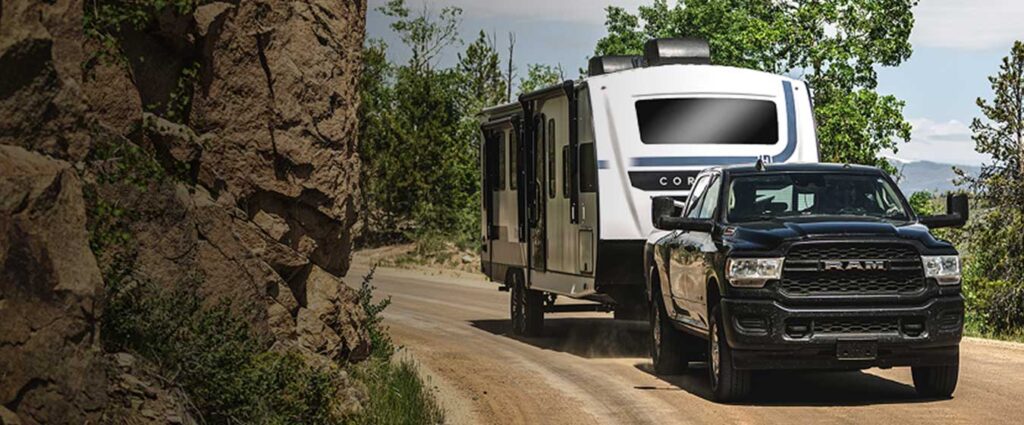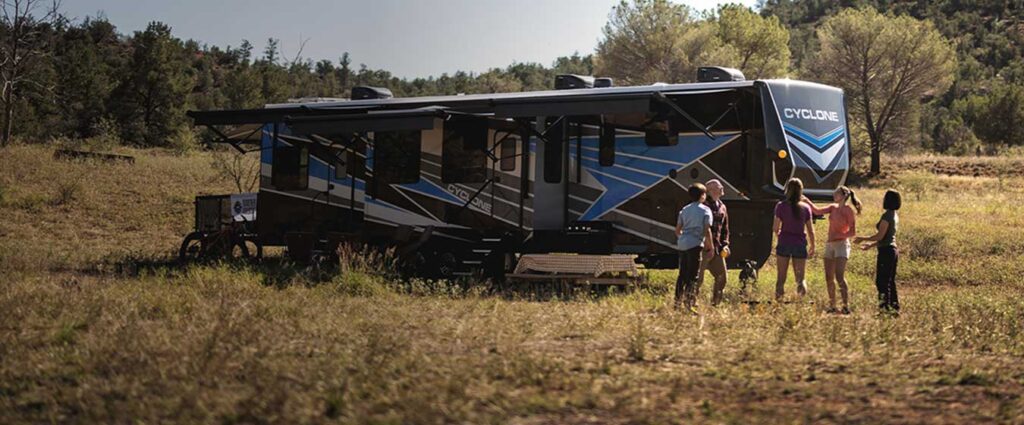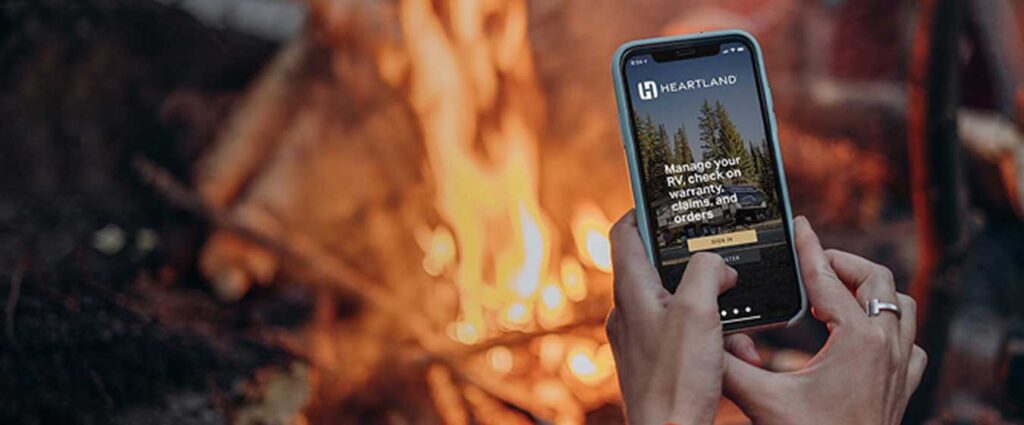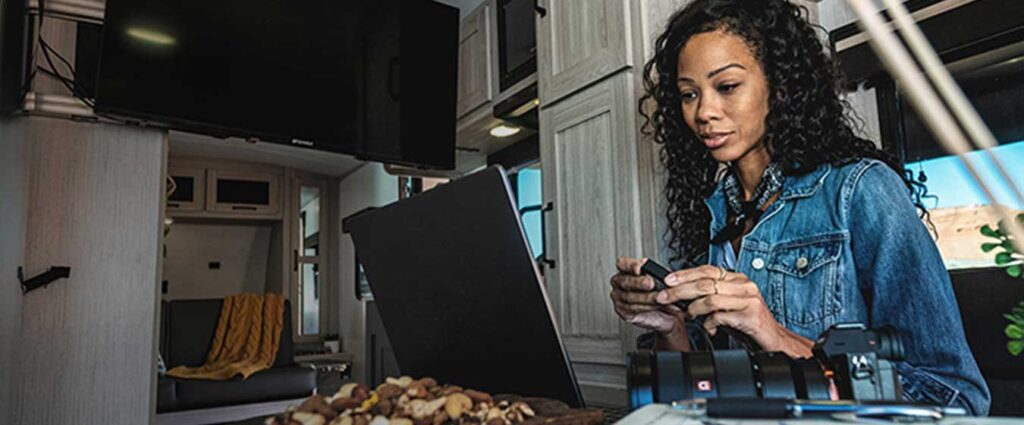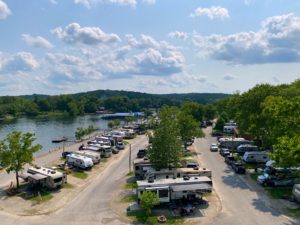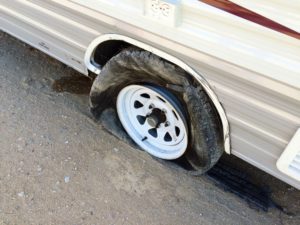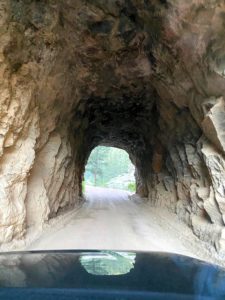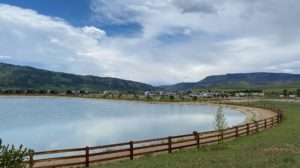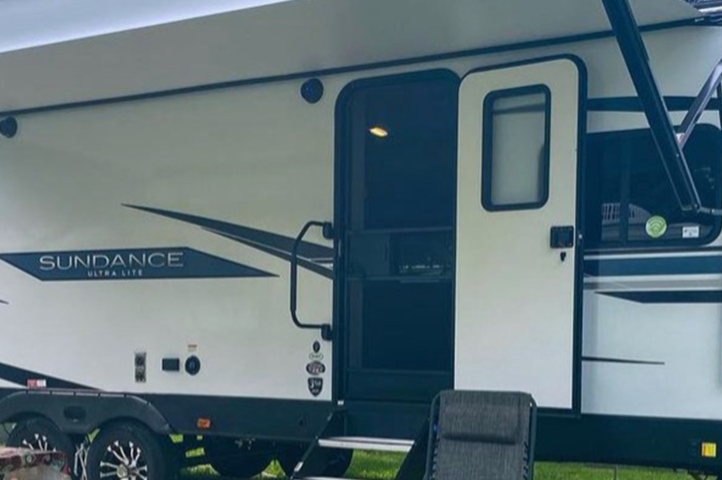Whether it’s a nightmare campsite, a toilet paper pyramid that won’t budge, or a blown tire, at some point, almost every RVer makes mistakes—ranging from minor inconveniences to embarrassing fiascos to truly dangerous situations. Learning from others’ mistakes is one way to avoid these catastrophes yourself, no matter your experience level. Here are 10 mistakes new RVers make—and tips for avoiding them.
1. Buying the Wrong RV
Sometimes, you don’t know exactly what kind of RV you want or need until you gain more experience. Should you get motorized or towable? How big is too big? Will your family dynamics change in the years ahead? Can your vehicle safely tow that trailer?
When buying your first rig, it’s hard to imagine what size, type, and features will be a good fit, or you might not fully understand the numbers involved in matching a trailer and tow vehicle. Roadpass University’s RV Shopping course walks you through the many considerations and the RV buying process before you make the investment. Heartland offers a useful RV finder to help narrow down your rig options based on trailer type and group size.
2. Not Understanding Your RV’s Systems and Appliances
Not taking time to learn about your RV ahead of time means you will have to learn while on the road—sometimes with poor results. Handling black and gray tanks is more complicated than your home toilet and can lead to some unpleasant mistakes. Not understanding how to properly cool your fridge can leave you with unsafe food.
Take a thorough look at your RV owner’s manual to learn more about your tanks, appliances, and heating, air, water, and electrical systems. Online videos can be super helpful. Also, participate in RV forums (like those found at RVillage or the Heartland RV Owners Forum) or join Facebook groups to learn from other RVers’ experiences and questions.
3. Booking a Nightmare Campsite
Imagine arriving at a campsite only to find out that your RV won’t fit, your neighbors are partying, or the pool smells like sewage. Of course, you can’t investigate every detail about a campsite before your arrival, but take the time to read reviews to decide whether a campground is right for you.
Knowing what to expect can help you prepare and adjust your expectations. Campedium is a useful tool where you can view campground amenities, read user reviews, see real-life photos, and more. Also, Roadpass University’s Campgrounds, Boondocking, and Overnight RV Parking course can help you identify your camping style and align your expectations.
4. Overlooking RV Maintenance
Many RVers have faced a blown tire or busted pipe. While not all mechanical issues can be prevented, routine RV maintenance can help you avoid many woes, keeping you safe and comfortable while traveling. In addition to reading about maintenance or taking Roadpass University’s RV Maintenance Made Easy course, consider downloading the Togo RV app, which gives you access to a full suite of checklists, recall alerts, and a searchable service-and-repair database.
5. Taking a Road That’s Not Suitable for Your RV
Sometimes, you’ll turn down a road and realize that it’s not RV-friendly. It can be time-consuming, difficult, and stressful to get yourself out of situations like low-clearance tunnels or steep grade roads. Most common trip planning tools don’t take your RV’s width, length, height, and on-board propane into consideration when routing. Using an RV-specific GPS, like the one found in the Togo RV app, is the best way to avoid this mistake.
6. Forgetting a Step When Hitching
Travel trailers and tow vehicles are heavy pieces of equipment. One small mistake can lead to expensive repairs, or put you and others in danger. If you forget your chocks, your trailer can roll away. If you forget the metal pin that secures your RV to your tow vehicle, you could send your trailer flying across the freeway. Find detailed checklists for RV processes like hitching and unhitching on the Togo RV app, or create your own, to use every time you go through the process.
7. Focusing Too Much on the Destination and Not Enjoying the Journey
Many aspects of travel are about the destination; however, RVing isn’t like flying or other modes of travel. As you drive across the country, you’ll pass by stunning viewpoints and amazing attractions. Plan time on your travel days to stop and explore. The Roadtrippers app makes it easy to find Extraordinary Places, quirky attractions, historic sites, recreation, restaurants, and campgrounds along your route.
8. Having Unrealistic Budget Expectations
Camping is cheap, right? Well, it can be. You can camp for free on public lands—or spend $175 per night on a plush RV resort. You can prepare all meals in your camper—or enjoy local restaurants every night. How much you spend is really up to you.
Roadtrippers and Campendium can help you figure out a trip budget. Roadtrippers automatically estimates your fuel costs, and Campendium allows reviewers to share the price they paid for camping fees. Campendium’s search filters also make it easy to find free camping locations.
9. Not Budgeting for Repair and Maintenance
On the topic of budget, it’s important to know that your RV payment and trip expenses aren’t the only items that will show up in your yearly expenses. RV owners also need to prepare for unexpected repairs and regular maintenance items.
You now own another heating and air system, refrigerator, microwave, water heater, and several more tires. Your tow vehicle and motorhome will need oil changes and may also need tires frequently. Luckily, a Roadpass Pro membership comes with benefits and discounts to help you save on necessities.
10. Expecting Campground WiFi to Work
Even though many campgrounds advertise free WiFi, it’s notoriously unreliable and often doesn’t have enough bandwidth to support streaming for everyone at the campground. Try as they might, campgrounds are facing an uphill battle to provide decent connectivity, especially at parks in scenic, remote landscapes. Having your own hotspot or other connectivity option is critical if you’re working remotely while on the road.
Campedium gathers and shares information about cell phone signal coverage in its campground listings. Be sure to know before you go, especially if connectivity is a necessity.
Read more: How to Stay Connected from Anywhere
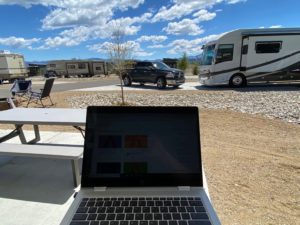
—
Unfortunately, this list won’t save you from every possible mistake you’ll make as a new RVer. However, as long as you head into the journey with some preparation and a positive attitude, you will figure it all out along the way. Some of your worst mistakes will become your best stories to tell around the campfire.
